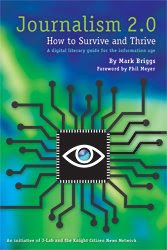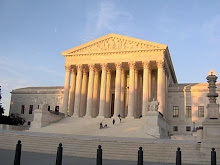Yesterday's New York Times ran an interesting article based on excerpts from the blogs/letters of troops killed in Iraq. I enjoyed reading it but had one problem; in the writings of one of the men, certain words have been replaced with the word "expletive." I said this in my post about the FCC, but I am strongly opposed to this type of editing. If we are supposed to be reading something that will paint an accurate picture of what this young man was feeling when he was at war, we should read all of his words, just as they are. The words used (I can't quite tell what the offending word was, but I imagine it's probably "THE" word.) carry a specific emotional power and papers should be willing to run those words. People will argue that children might read the paper, but as I said in my previous post, children who are mature enough to want to read the New York Times are mature enough to read a few bad words without running out in the streets repeating them. The editors may say they don't want to offend other readers who choose not to use those words; others would argue that the war is offensive. People who read this article and would have been offended by the expletives should ask themselves what their real priorities are. Of course there's a point at which language crosses the line — I'm not arguing for graphic descriptions of sexual acts — but the two posts in question use a word for emphasis, that frankly, I think is important in the context (bold italics added by me to point out what I'm talking about):
Sgt. Ryan M. Wood, 22, a gifted artist, prolific writer and a sly romantic from Oklahoma, was also one of the bluntest soldiers inside Charlie Company.
"it is fighting extreme boredom with the lingering thought in the forefront of your mind that any minute on this patrol could be my last endeavour, only highlighted by times of such extreme terror and an adrenaline rush that no drug can touch. what [expletive] circumstances thinking “that should’ve been me” or “it could’ve been me”. wondering it that pile of trash will suddenly explode killing you or worse one of your beloved comrads..only backed by the past thoughts and experiences of really losing friends of yours and not feeling completely hopeless that it was all for nothing because all in all, you know the final outcome of this war. it is walking on that thin line between sanity and insanity. that feeling of total abandonment by a government and a country you used to love because politics are fighting this war......and its a losing battle....and we’re the ones ultimently paying the price."
A second excerpt, written by the same man, discusses America's obsession with celebrity life instead of issues such as the war in a post titled "What the Hell, America?":
“What the hell happened?” any intelligent American might ask themselves throughout their day. While the ignorant, dragging themselves to thier closed off cubicle, contemplate the simple things in life such as “fast food tonight?” or “I wonder what motivated Brittany Spears to shave her unsightly, mishaped domepiece?”
To the simpleton, this news might appear “devastating.” I assume not everyone thinks this way, but from my little corner of the earth, Iraq, a spot in the world a majority of Americans could’nt point out on the map, it certainly appears so. ... To all Americans I have but one phrase that helps me throughout my day of constant dangers and ever present death around the corner, “WHO THE [expletive] CARES!” Wow America, we have truly become a nation of self-absorbed retards. ... This world has serious problems and it’s time for America to start addressing them.
God forbid people should know that a young man living (and eventually dying) in a terrifying, stressful situation express his frustration with an "F-bomb" or two. These posts are honest depictions of the emotions this man was feeling at the time.
If the powers that be at the paper respect/mourn these soldiers enough to want to publish their words, the words should not be edited. I don't advocate random, gratuitous use of obscenities in print, but this is one case where they should have been allowed.
And here is the rest of it.







